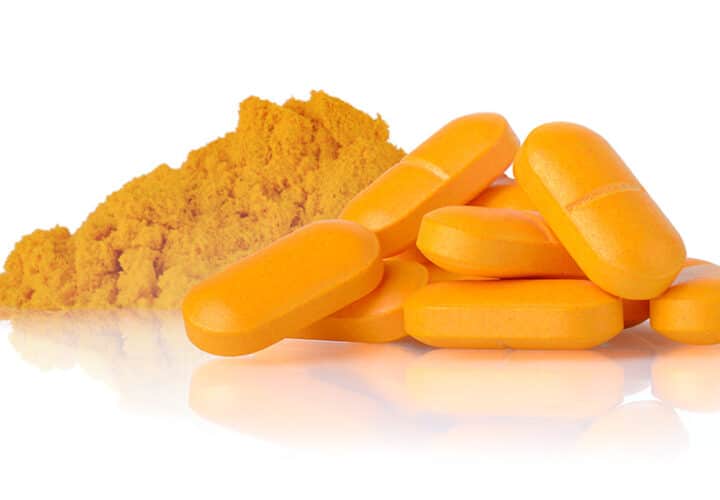Another flu season is closing in — and with it, another wave of COVID-19. For those looking to vitamins and brain health supplements to help with cognitive symptoms, here's what to consider — and what to avoid.
There are a number of different ways that COVID-19 can leave its mark on the brain. Some are life-threatening — from severe brain-swelling to strokes. Other are a more subtle, and harder to diagnose, like increased forgetfulness, or trouble staying focused. No matter how mild, the neurological symptoms that might follow a SARS-CoV-2 infection can be stressful and disruptive, even debilitating. And, studies are finding, they can linger for months on end.
“Difficulties with cognitive functions or skills, such as the ability to recall memories, concentrate on tasks, or find the right words in conversation, are commonly reported following a COVID infection. These symptoms are often referred to as “brain fog”, and are especially common among people who have long-term or persistent symptoms called long COVID,” King’s College London genetic epidemiologist Nathan Cheetham wrote in an article on his team’s research into COVID’s cognitive symptoms.
“In the short term, brain fog symptoms can affect people’s ability to carry out their normal daily tasks, such as work and childcare, and reduce their quality of life,” Cheetham explained. “In the longer term, mild cognitive impairment can develop into more severe conditions, such as dementia. COVID infection generally has been linked to an increased risk of being diagnosed with dementia.”
If you’re grappling with these symptoms, there are some dietary and lifestyle changes that may help. But the search for remedies may take you through a maze of brain supplement marketing hype. Here’s what you need to know about what works and what doesn’t.
Can brain health supplements help with COVID brain fog?
The short answer: Not necessarily. Many of the supplements that make claims about benefits to brain health have not been studied in credible, large-scale, peer-reviewed trials, and experts say there is simply no trustworthy scientific evidence that they work.
Product labels may claim otherwise, but it should be noted that these labels can’t always be trusted. The supplements market is considered a “Wild West” of products that don’t require an FDA approval before hitting the market. Being Patient has reported story after story about various brain health supplement makers (Neuriva Plus, Prevagen to name a couple) settling false-advertising lawsuits after making scientifically unverified claims about their (sometimes quite pricy) products’ dubious benefits.
That said, there are plenty of vitamins that are unquestionably good for us (when taken as instructed).
Vitamins and nutrients like omega-3 fatty acids, high-quality multivitamins, Vitamin C, Vitamin D, and curcumin, and others have been shown in peer-reviewed studies to give the brain a boost. Curcumin (turmeric) — the substance that gives curry its yellow color — is also an anti-inflammatory that may help improve both memory and mood. It has even been employed as a key ingredient in experimental Alzheimer’s treatments. Severe vitamin D deficiency has been linked to an increase in dementia risk — by as much as double. And a vitamin B12 deficiency has been associated with fatigue, poor memory and depression. In many cases, however, more research is still needed to determine the exact brain health benefits that can be gleaned from these vitamins and at what dosages. Certain nutrients, like magnesium, may have a deep well of research behind their associations with brain health, but that does not mean a consensus has been reached on its effects.
One thing most scientists agree on: It’s best and most effective to get these vitamins and nutrients from one’s diet, not from a bottle in the supplements aisle. In some cases, supplements can even be harmful.
Make sure you’re getting nutrients via your diet
The good news is, many of these nutrients come in foods you may already eat regularly. Leafy greens like kale, spinach, and cabbage are rich in multiple nutrients including vitamin E, folate, beta-carotene, lutein-zeaxanthin and flavonoids. All of these micronutrients are linked to better cognitive function in humans.
And the Mediterranean diet may be one of the best diets out there for brain health. It consists of vegetables, whole grains, legumes, olive oil, and fish. Various components of this diet each come with their own science-backed perks: For one, studies have found extra virgin olive oil, with its antioxidative and anti-inflammatory properties, may contribute to a better visual memory, improved verbal fluency, and even decreased risk of developing dementia and Alzheimer’s. Meanwhile, fish is a great source of omega-3s, which studies have linked with slower rates of cognitive decline.
Change takes time, and science shows it’s important to be patient, and to be consistent.
The bottom line: Focus on the following vitamins and nutrients
If you’re looking for vitamins and nutrients that can help mitigate brain fog, avoid flashy, celebrity-endorsed supplements with too much branding and not enough peer-reviewed, third-party studies to verify their benefits. Instead, just make sure you’re getting your recommended daily values of vitamins like B, C and D, and omega-3 fatty acids.
Eat a healthy diet, don’t take supplements without consulting the instructions and your doctor, and keep in mind: Vitamins aren’t the only course to a clearer head. Other simple lifestyle changes — including sleep and exercise — can make a big difference in clearing brain fog.





I find myself searching for that magic formula which will alleviate my colon long symptoms. Supplements might just be hope, but hope unfortunately is a failure word.